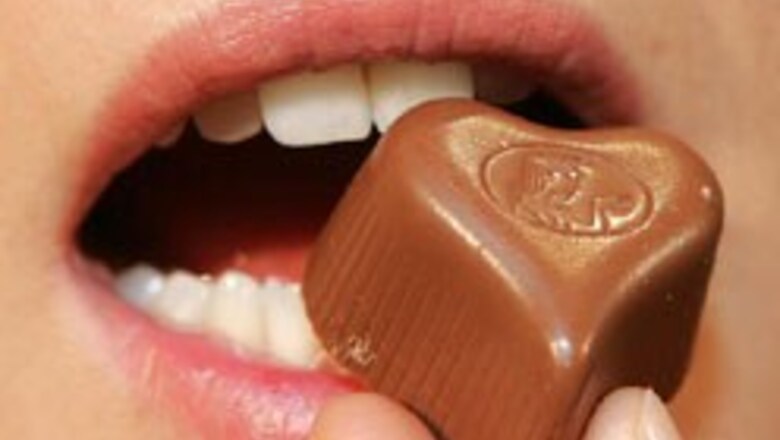
views
Washington: They were so addicted, they just could not give up their favorite daily snack -not even in the interest of science.
But chocolate lovers who flunked out of a Johns Hopkins University study on aspirin and heart disease helped researchers stumble on an explanation of why a little chocolate a day can cut the risk of heart attack.
It turns out chocolate, like aspirin, affects the platelets that cause blood to clot, Diane Becker of the Johns Hopkins University's School of Medicine and her colleagues discovered.
"What these chocolate offenders taught us is that the chemical in cocoa beans has a biochemical effect similar to aspirin in reducing platelet clumping, which can be fatal if a clot forms and blocks a blood vessel, causing a heart attack," Becker said in a telephone interview.
The 139 so-called chocolate offenders took part in a larger study of 1,200 people with a family history of heart disease. The study looked at the effects of aspirin on blood platelets.
Before they got the aspirin, the volunteers were asked to stay on a strict regimen of exercise, refrain from smoking and avoid caffeinated drinks, wine, grapefruit juice and chocolate.
Chocolate and the other foods are known to affect platelets.
"We knew they would offend," Becker said. "Some people said to us, 'I can do anything but I can't stay off my chocolate."'
"If people said, 'I will try my very best,' we said, 'OK do your very best, but it is crucial that you don't eat chocolate for 24 to 48 hours before you come in for testing."'
Yet some people failed even this test of self-control.
"Nobody ate like a chocolate chip. If they were going to eat it, they ate some chocolate," Becker said.
"It went all the way from a chocolate chip cookie to someone who ate a gallon of chocolate ice cream with chocolate chunks and two chocolate-chip cookies at one sitting."
Becker cut them out of the aspirin study, but looked at their blood anyway.
Researchers ran platelet samples from both groups through a mechanical blood vessel system designed to time how long it takes for the platelets to clump together in a hair-thin plastic tube.
The blood of the chocolate eaters was slower to clot than the blood of the volunteers who resisted chocolate, Becker told a meeting of heart experts in Chicago.
In a urine test, the chocolate lovers had lower levels of a platelet waste product called thromboxane.
"Does it help a little bit? Yes," Becker said adding, "But it does not have anywhere near the magnitude of the effects of a single baby aspirin a day."
Nonetheless, Becker's team wants to study the effects of eating chocolate on a "free-living" population of volunteers.
They will measure how much chocolate people eat and then watch them for several years to see if chocolate-eaters have a different rate of heart attacks, stroke and heart operations.
Other studies have suggested that dark chocolate contains more of the beneficial compounds linked with heart health, and experts note that the high sugar and fat content of most chocolate candy might cancel out some of the benefits.













Comments
0 comment